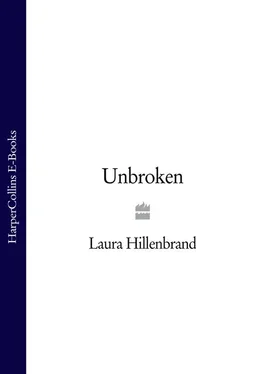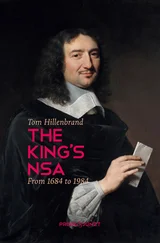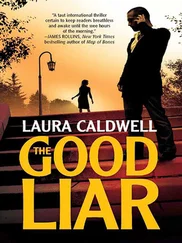The Olympic Village wasn’t empty for long. The cottages became military barracks. With the Olympics over and his usefulness for propaganda expended, the village’s designer, Captain Fürstner, learned that he was to be cashiered from the Wehrmacht because he was a Jew. He killed himself. Less than twenty miles away, in the town of Oranienburg, the first prisoners were being hauled into the Sachsenhausen concentration camp.
On the evening of September 2, when Louie arrived in Torrance, he was plunked onto a throne on the flatbed of a truck and paraded to the depot, where four thousand people, whipped up by a band, sirens, and factory whistles, cheered. Louie shook hands and grinned for pictures. “I didn’t only start too slow,” he said, “I ran too slow.”
As he settled back into home, Louie thought of what lay ahead. Running the 1936 Olympic 5,000 at nineteen on four races’ experience had been a shot at the moon. Running the 1940 Olympic 1,500 at twenty-three after years of training would be another matter. The same thought was circling in Pete’s mind. Louie could win gold in 1940, and both brothers knew it.
A few weeks before, officials had announced which city would host the 1940 Games. Louie shaped his dreams around Tokyo, Japan.
*Louie would later recall eating at a restaurant only once, when a family friend bought him a sandwich at a lunch counter, but according to his Olympic diary, after his 5,000-meter trial, a fan treated him to dinner in a Manhattan skyscraper. The meal cost $7, a staggering sum to Louie, who had been paying between 65 cents and $1.35 for his dinners, carefully recording the prices in his diary.
Конец ознакомительного фрагмента.
Текст предоставлен ООО «ЛитРес».
Прочитайте эту книгу целиком, купив полную легальную версию на ЛитРес.
Безопасно оплатить книгу можно банковской картой Visa, MasterCard, Maestro, со счета мобильного телефона, с платежного терминала, в салоне МТС или Связной, через PayPal, WebMoney, Яндекс.Деньги, QIWI Кошелек, бонусными картами или другим удобным Вам способом.












